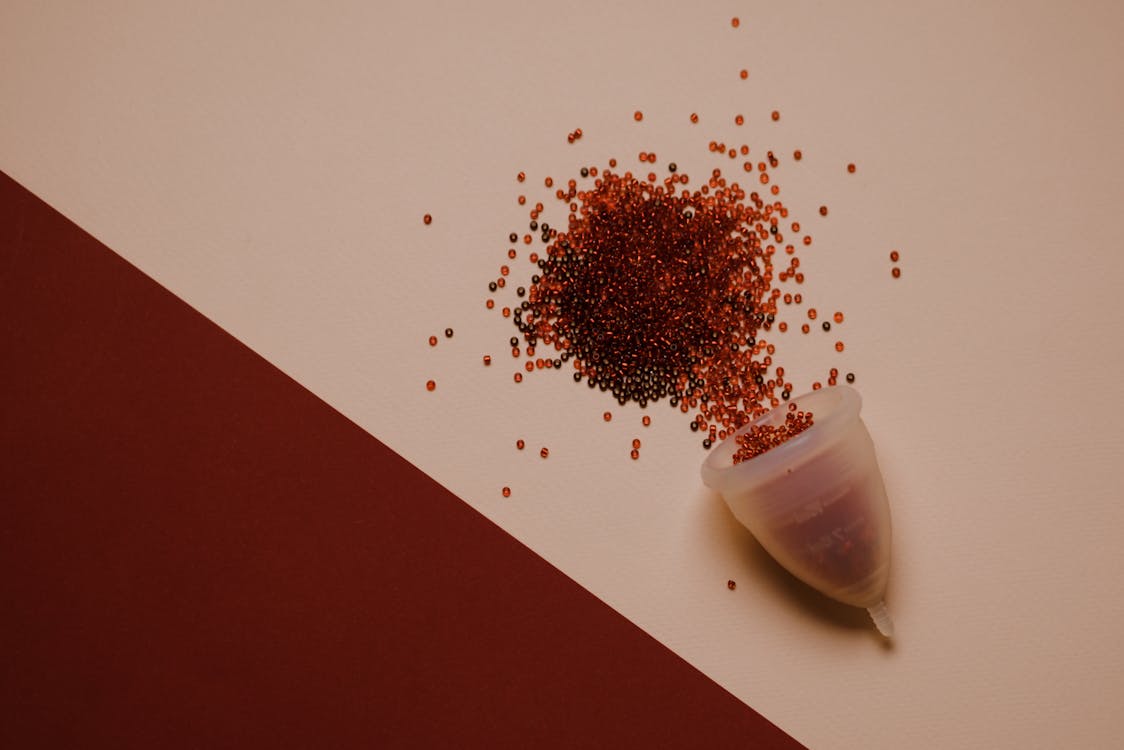Every woman has a different period, some have light flow while others have heavy flow. However, it’s essential to know when your flow is considered too heavy as it could lead to a decrease in iron levels and cause other health issues. Here are the signs you’re losing too much blood during your period.
Heavy Menstrual Bleeding (HMB) is defined as excessive or prolonged menstrual bleeding that interferes with a woman’s physical, social, and emotional quality of life. HMB affects about 1 in 5 women, and it’s more common in women who are in their 30s and 40s. It’s essential to identify the signs of HMB so that you can seek medical help if required.
Signs You’re Losing Too Much Blood During Period

1. Changing tampons or pads frequently
If you’re changing your tampons or pads every 1-2 hours, you may be experiencing heavy bleeding. This could be a sign that you’re losing too much blood during your period.
2. Clots
Passing small clots during your period is normal, but passing large clots (larger than a quarter) could be a sign of heavy bleeding. These clots could be a sign that you’re losing too much blood during your period.
3. Fatigue
Fatigue is a common symptom of iron-deficiency anemia. Heavy menstrual bleeding can cause anemia, leading to fatigue, weakness, and shortness of breath.
4. Short menstrual cycles
If you have menstrual cycles shorter than 21 days, it could be a sign of HMB. This could be a sign that you’re losing too much blood during your period.
Also read | Period Blood Bright Red and Watery: Is It Normal?
5. Long menstrual cycles
If you have menstrual cycles longer than 35 days, it could be a sign of HMB. This could be a sign that you’re losing too much blood during your period.
6. Soaking through tampons or pads
If you’re soaking through your tampons or pads and staining your clothes, it could be a sign of HMB. This could be a sign that you’re losing too much blood during your period.
7. Anemia
If you’re experiencing heavy bleeding, it could lead to iron-deficiency anemia. Anemia occurs when your body doesn’t have enough iron to produce hemoglobin, which is essential for carrying oxygen in your blood.
8. Dizziness or lightheadedness
Heavy menstrual bleeding can cause a decrease in blood pressure, leading to dizziness or lightheadedness.
9. Shortness of breath
Anemia caused by heavy menstrual bleeding can lead to a decrease in the amount of oxygen-carrying red blood cells, leading to shortness of breath.
10 Abdominal pain
Abdominal pain during your period is common, but severe pain could be a sign of HMB. This could be a sign that you’re losing too much blood during your period.
Also read | 7 Sweet Things To Do For Your Girlfriend During Her Period That Will Go A Long Way
11. Abdominal Pain
Abdominal pain can be a sign that you’re losing too much blood during your period. When you lose blood, your body has to work harder to circulate the remaining blood, which can cause abdominal pain and cramping.
In conclusion, it’s important to measure your blood loss. The easiest way to do this is to keep track of how many pads or tampons you use
FAQs
How much blood loss during periods is considered normal? Normal blood loss during periods is between 30-80ml.
Can heavy menstrual bleeding be treated? Yes, heavy menstrual bleeding can be treated with medication, surgery, or lifestyle changes.
What causes heavy menstrual bleeding? Heavy menstrual bleeding can be caused by fibroids, hormonal imbalances, endometriosis, or other medical conditions. Source 1, and 2









